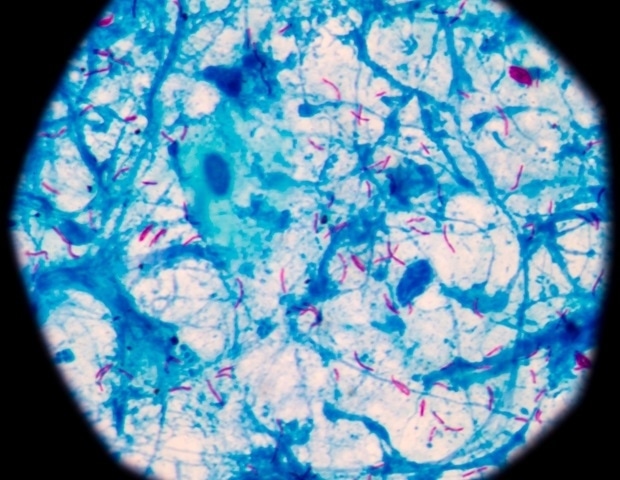In a recent study published in the Journal of Internal Medicine, researchers observe that kidney transplantation (KT) mitigates the effects of renal aging.
 Study: Epigenetic clocks indicate that kidney transplantation and not dialysis mitigate the effects of renal aging. Image Credit: H_Ko / Shutterstock.com
Study: Epigenetic clocks indicate that kidney transplantation and not dialysis mitigate the effects of renal aging. Image Credit: H_Ko / Shutterstock.com
Treating chronic kidney disease
Chronic kidney disease (CKD) is an age-related disease and exhibits an accelerated aging phenotype. The reduced clearance of uremic toxins during CKD results in the accumulation of toxic solutes that contribute to endothelial dysfunction, chronic inflammatory burden, and increased oxidative stress.
KT is currently the best treatment for kidney failure; however, it is associated with certain challenges, such as organ rejection/dysfunction risk, limited kidney lifespan, and the need for immunosuppression. Likewise, dialysis has limitations, including an increased infection risk, expensive, reduced quality of life, low efficacy, and an increased risk of additional oxidative stress and inflammation. Furthermore, whether dialysis or KT decelerates or reverses the aging associated with CKD remains unknown.
About the study
In the present study, researchers estimate the biological age of CKD patients at stages G3 (moderate decrease in kidney function) to G5 (kidney failure) using DNA methylation (DNAm), skin autofluorescence (SAF), and phenotypic age (PA) methods. The PA cohort included controls and patients with CKD at stages G3-4 and G5, whereas the DNAm cohort comprised CKD G5 patients initiating dialysis or KT and controls. The SAF cohort comprised end-stage kidney disease (ESKD) patients.
Blood samples were collected at baseline to estimate serum creatinine, albumin, interleukin 6 (IL-6), hemoglobin, high-sensitivity C-reactive protein (hs-CRP), white blood cell count, intact parathyroid hormone (iPTH), calcium, triglycerides, cholesterol, and phosphate.
PA was estimated based on chronological age and nine biomarkers, including CRP, albumin, alkaline phosphatase, leucocyte count, red blood cell (RBC) volume, lymphocyte percentage, serum glucose, creatinine, and RBC distribution width.
SAF was determined at blood sample collection using an Autofluorescence advanced glycation end products (AGE) reader. For DNAm analysis, whole blood samples were obtained from kidney failure patients at baseline, defined as pre-dialysis initiation or pre-KT, and after one year. DNA was extracted, and its concentration and integrity were assessed.
DNAm was measured, and beta values, which reflect percent methylation per locus, were calculated. DNAm age was estimated from the beta values using three DNAm clocks, including the PhenoAge, Hannum, and Horvath clocks.
Age acceleration, which is defined as the difference between chronological and DNAm age, was calculated for each clock. Subjects were followed up for 60 months or until KT/death.
Study findings
The researchers examined PA in 333 individuals, 56.5% of whom were males, 24.6% had cardiovascular disease (CVD), and 24% had diabetes. PA and chronological age were associated in controls and CKD G3-4 patients. The CKD G5 group exhibited high PA, and the correlation with chronological age was significant but low.
Elevated PA was associated with reduced estimated glomerular filtration rate (eGFR), albumin, hand grip strength (HGS), hemoglobin, high-density lipoprotein (HDL), and higher triglycerides, hs-CRP, systolic blood pressure, iPTH, and IL-6 levels.
The SAF cohort included 199 subjects, 65.3% of whom were male. Approximately 20% of the SAF cohort had diabetes or CVD.
The correlation between chronological and SAF age was moderate in CKD G5 patients. Increased SAF age was associated with reduced albumin and HGS and higher hs-CRP and IL-6 levels.
The DNAm cohort consisted of 47 individuals. The three DNAm clocks were accurate, and their median absolute error was consistent with previously reported estimates.
The mean DNAm age, which is a composite average of the three clocks, was 49.2. The average age acceleration difference between KT or dialysis group and controls was 4.9 or 5.9 years, respectively. There was a weak correlation between chronological and DNAm age in the KT group relative to dialysis and control groups at baseline.
The three clocks were associated with greater age acceleration in KT and dialysis groups than in controls. PhenoAge and composite DNAm age acceleration significantly declined one year following KT relative to baseline; however, there were no significant changes in age acceleration a year post-dialysis. Notably, the KT group exhibited improvements in kidney function measures.
Conclusions
The study findings confirm that CKD promotes accelerated aging. Moreover, SAF and PA were found to be unsuitable aging biomarkers, as they generate implausibly high biological age estimates.
Although SAF and PA correctly indicate higher morbidity and mortality risks, they overestimate the magnitude of the risk. DNAm clocks performed better, thus suggesting that DNAm may serve as a superior biomarker for biological age estimation in CKD.
ESKD patients exhibit epigenetic age acceleration using three epigenetic clocks and a composite average of the three clocks. However, the weaker correlation between chronological and DNAm aging in the KT group may be attributed to the smaller sample size.
Moreover, age acceleration was reduced one year after KT, whereas dialysis had no effect on age acceleration.
Journal reference:
- Neytchev, O., Erlandsson, H., Witasp, A., et al. (2023). Epigenetic clocks indicate that kidney transplantation and not dialysis mitigate the effects of renal aging. Journal of Internal Medicine. doi:10.1111/joim.13724




_6e98296023b34dfabc133638c1ef5d32-620x480.jpg)









